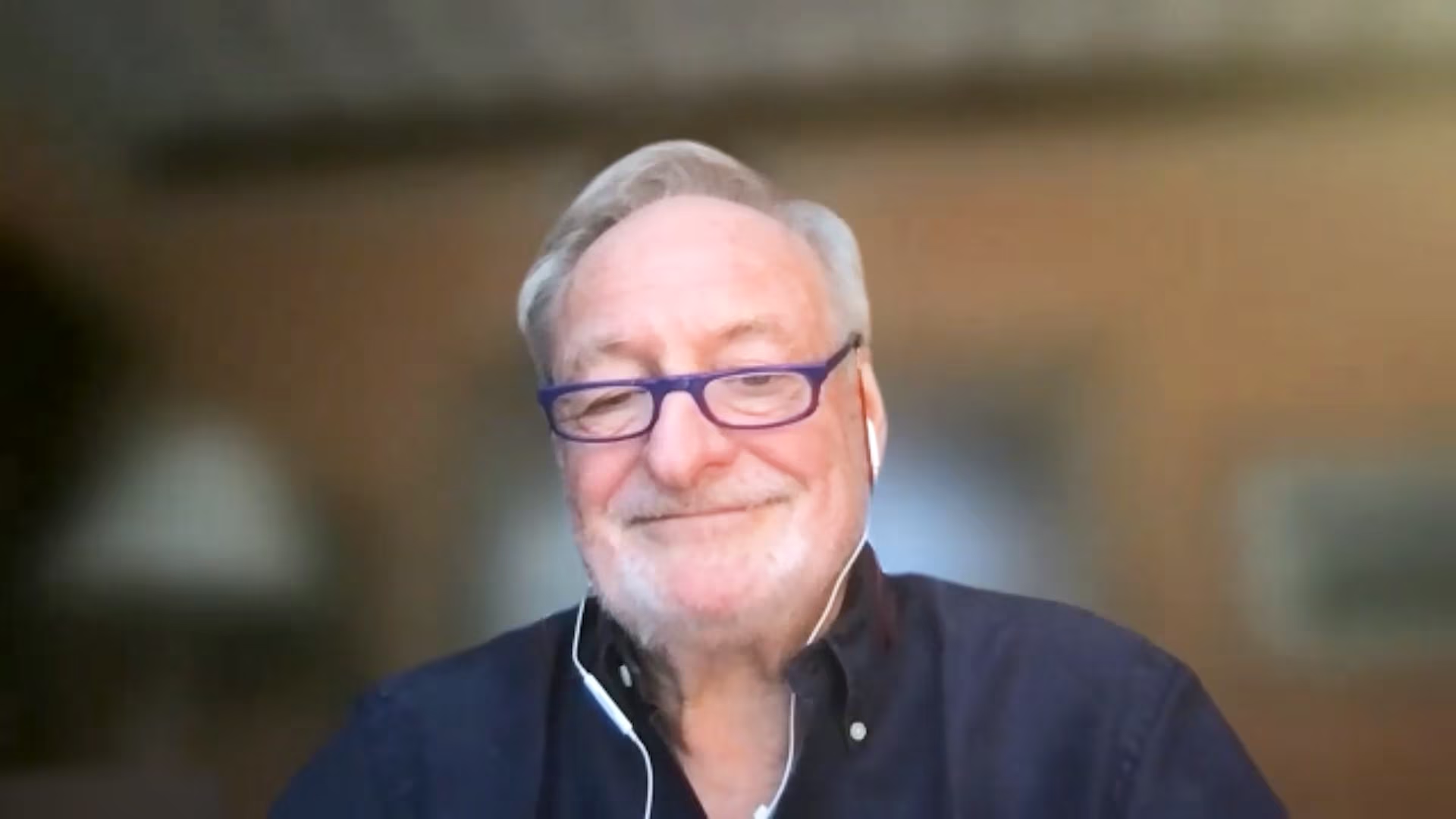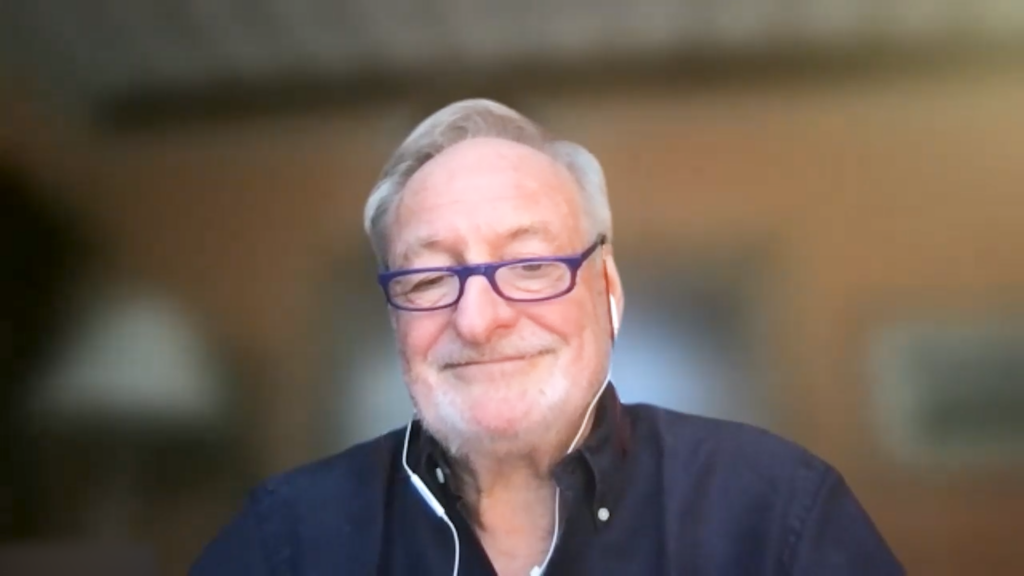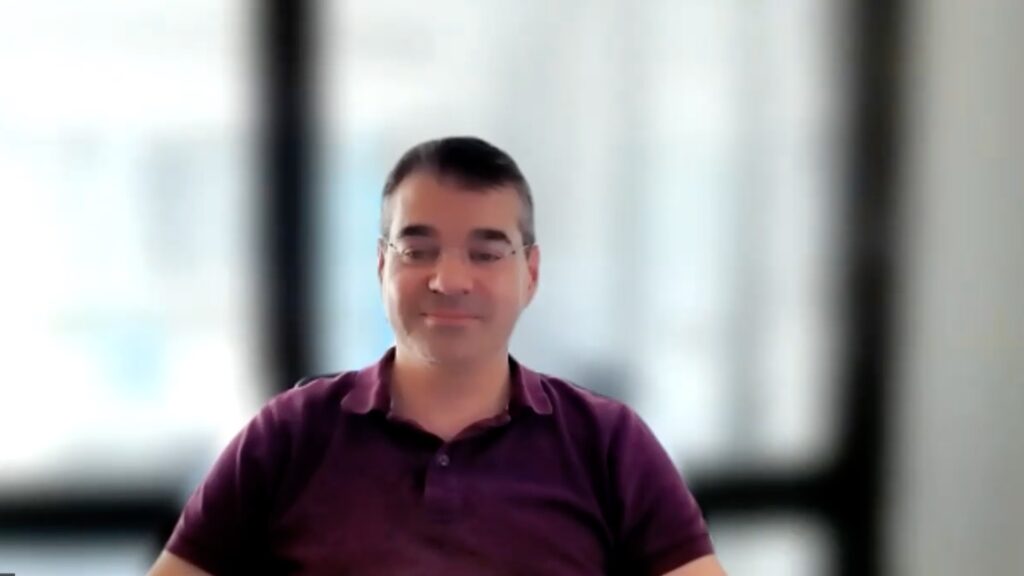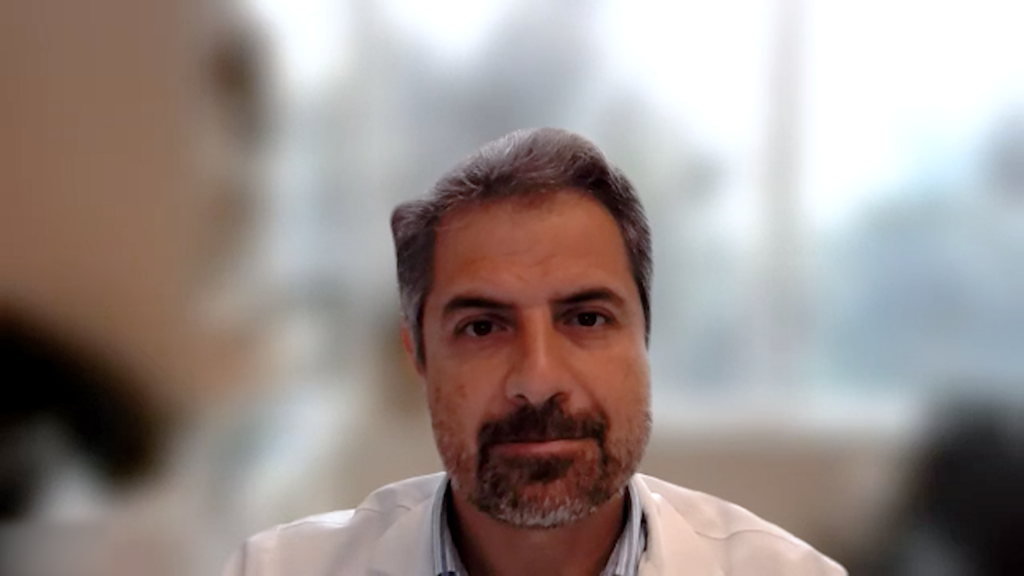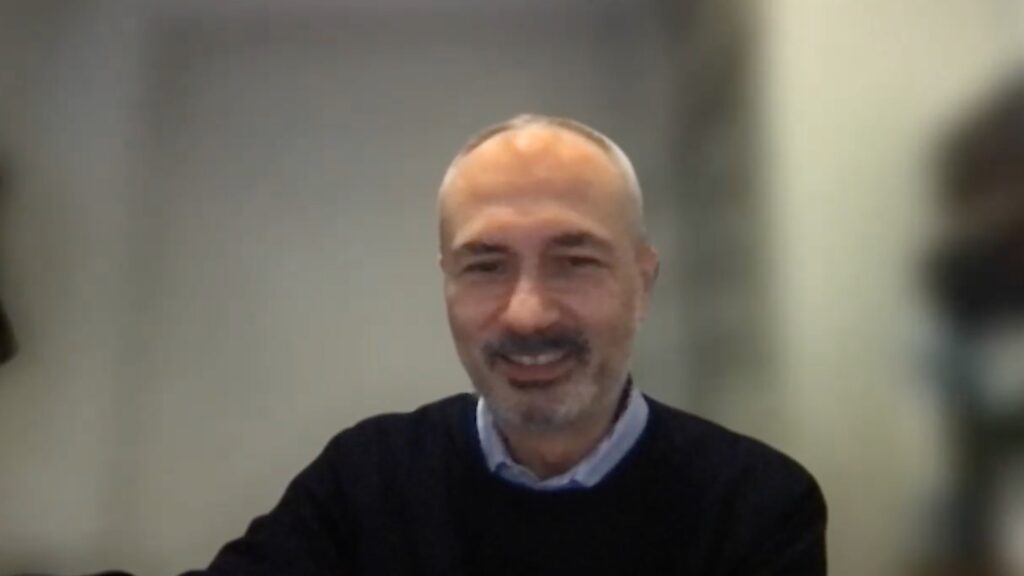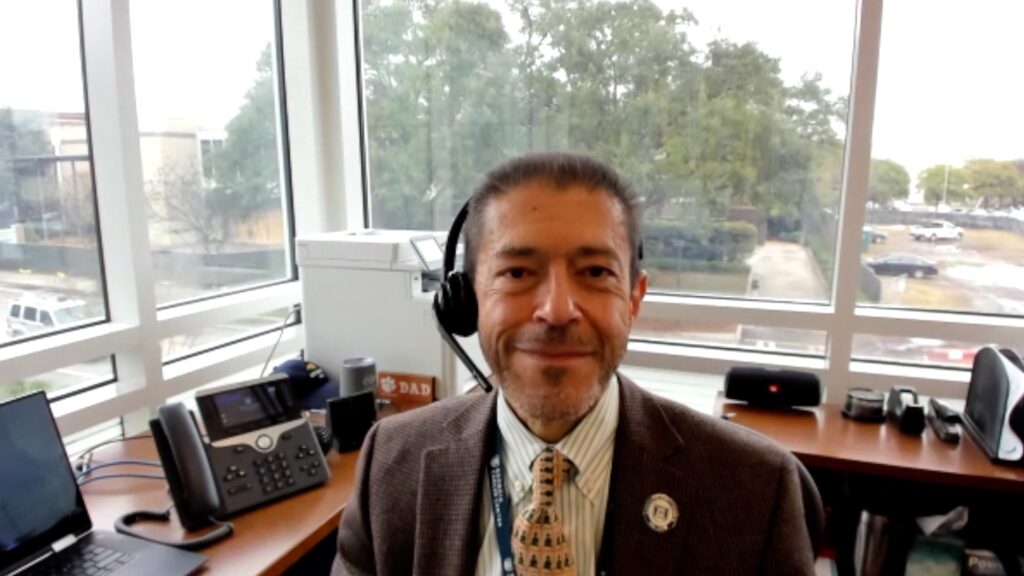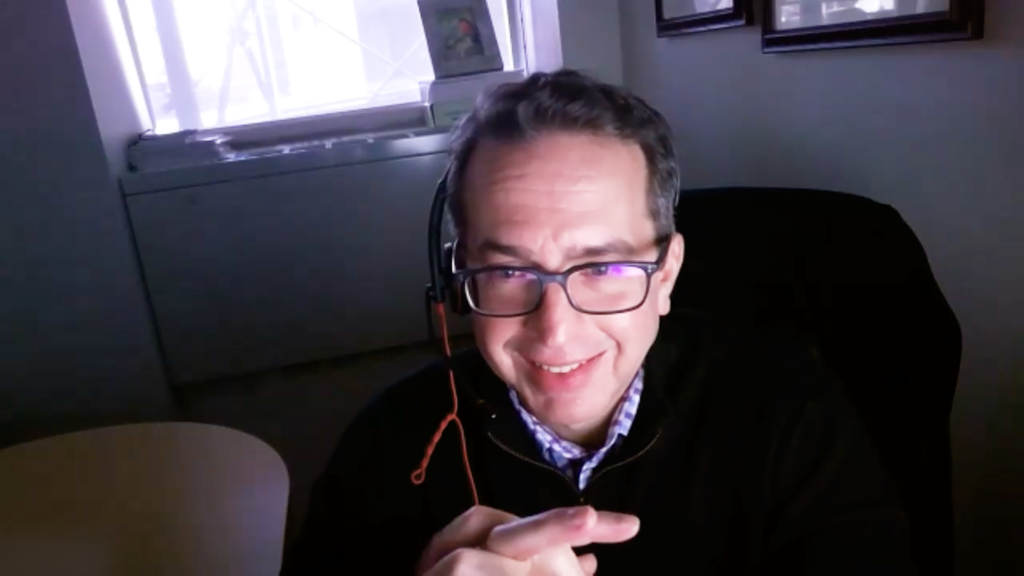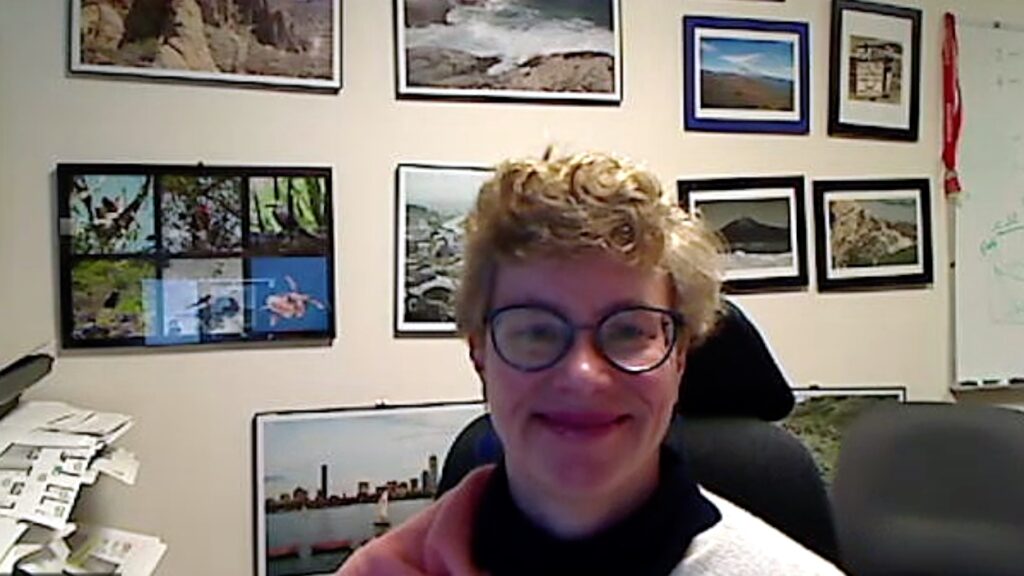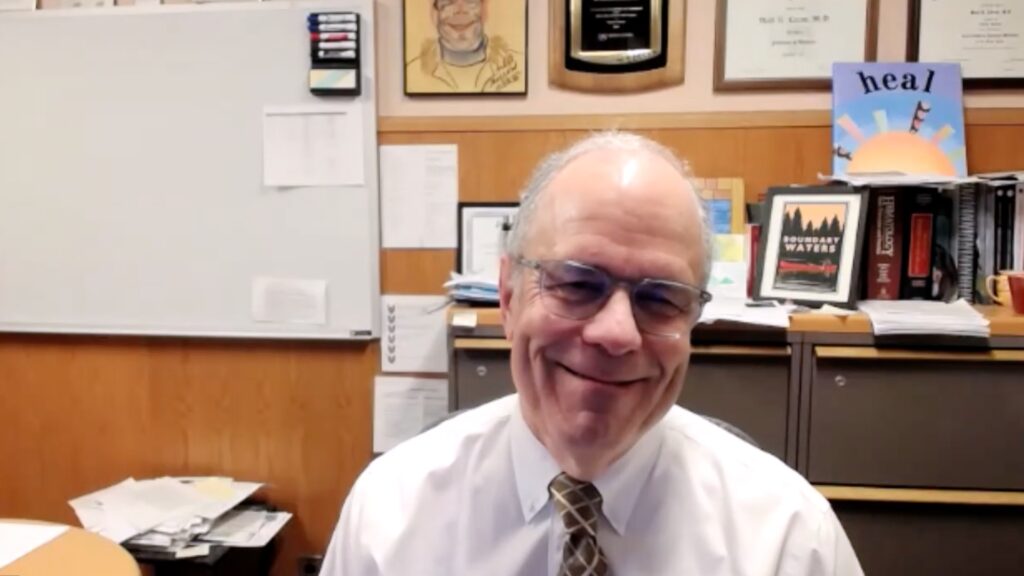The open-label, single-arm phase Ib/II Felix study (NCT04404660) investigated obecabtagene autoleucel (obe-cel, AUTO1), a novel anti-CD19 autologous CAR-T cell therapy, in adults with relapsed/refractory B-cell acute lymphoblastic leukemia. The results suggest that obe-cel can provide long-term remission without necessarily needing a transplant. touchONCOLOGY spoke with editorial board member, Elias Jabbour (MD Anderson Cancer Center, Houston, TX, USA), who summarized the key take-home messages from his presentation at ASCO 2024. Dr Jabbour also discussed the findings from the ASC4FIRST trial (NCT04971226).
Associated abstracts:
Jabbour E, et al. Obecabtagene autoleucel (obe-cel, AUTO1) in adults with relapsed/refractory B-cell acute lymphoblastic leukemia (R/R B-ALL): Overall survival (OS), event-free survival (EFS) and the potential impact of chimeric antigen receptor (CAR)-T cell persistency and consolidative stem cell transplantation (SCT) in the open-label, single-arm FELIX phase Ib/II study. ASCO Congress 2024, Abstract 6504
Hughes JP, et al. ASC4FIRST, a pivotal phase 3 study of asciminib (ASC) vs investigator-selected tyrosine kinase inhibitors (IS TKIs) in newly diagnosed patients (pts) with chronic myeloid leukemia (CML): Primary results. ASCO Congress 2024, Abstract 6504
Disclosures: Elias Jabbour has no financial or non-financial conflicts of interest to declare in relation to this video.
This content has been developed independently by Touch Medical Media for touchONCOLOGY and is not affiliated with ASCO. Unapproved products or unapproved uses of approved products may be discussed by the faculty; these situations may reflect the approval status in one or more jurisdictions. No endorsement of unapproved products or unapproved uses is either made or implied by mention of these products or uses by Touch Medical Media or any sponsor. Views expressed are the speaker’s own and do not necessarily reflect the views of Touch Medical Media
Click here for more content on haematological malignancies & for further ASCO 2024 highlights visit here.
Transcript
Hi. My name is Elias Jabbour from MD Anderson Cancer Center.
So about ASCO 2024, I think it was great meeting by every way.
In fact, it was good to reconnect with people after the pandemic. I know we met last year, but this year was even better. The weather was gorgeous.
Presentation, a lot of them are practice changing. And it was good to connect and network and meet with friends and colleagues at least.
One of the presentation that I did myself was the obe-cel, which is a novel CD19, first of CAR T.
I think, not only this strategy led to good responses, but it challenged the notion that whatever we do in relapsed ALL should be a bridge for transplantation.
This presentation was practice changing in a way that transplant may not be needed always. In fact, we’ve shown that obe-cel, which is the CAR T I presented, can be a destination therapy in a way 40% of the responders did not receive subsequent therapy and did amazingly well in the long run. Therefore, the message for us that we can cure ALL, we can provide the long-term remission without necessarily going for a transplant and without encountering the side effects that can be seen with a visual CAR T and, of course, transplantation.
And that is for me, practice changing. And we’ve shown a survival so far of 16 months, which is quite good in a relapse setting. And I’m eager to explore, this obe-cel in different, in a frontline, in a earlier state of the disease. But I think this will save life of people and so why it’s practice changing.
Other presentation in leukemia, a frontline trial in CML, comparing a asciminib, which is a novel, tyrosine kinase inhibitor to standard of care. It showed faster and deeper responses. Trial was positive. Would that translate into practice changing?
I do not know because price of the drug is a major concern. The old drugs are generics, and now we have a new drug. Yeah. It’s faster and deeper.
But we need to see if that will lead to more durable responses and improve the treatment of TPA failure measure rate. We’ve shown as well at ASCO that, in AML, for example, you do not need to give, HMO venetoclax for 21 to 28 days. You can shorten to 7 days, which is good and safer to the patient.
Interviewer/Editor: Carla Junkier
Cite: Jabbour E. Focus on leukemia – Felix and ASC4FIRST. touchONCOLOGY, July 23 2024.

